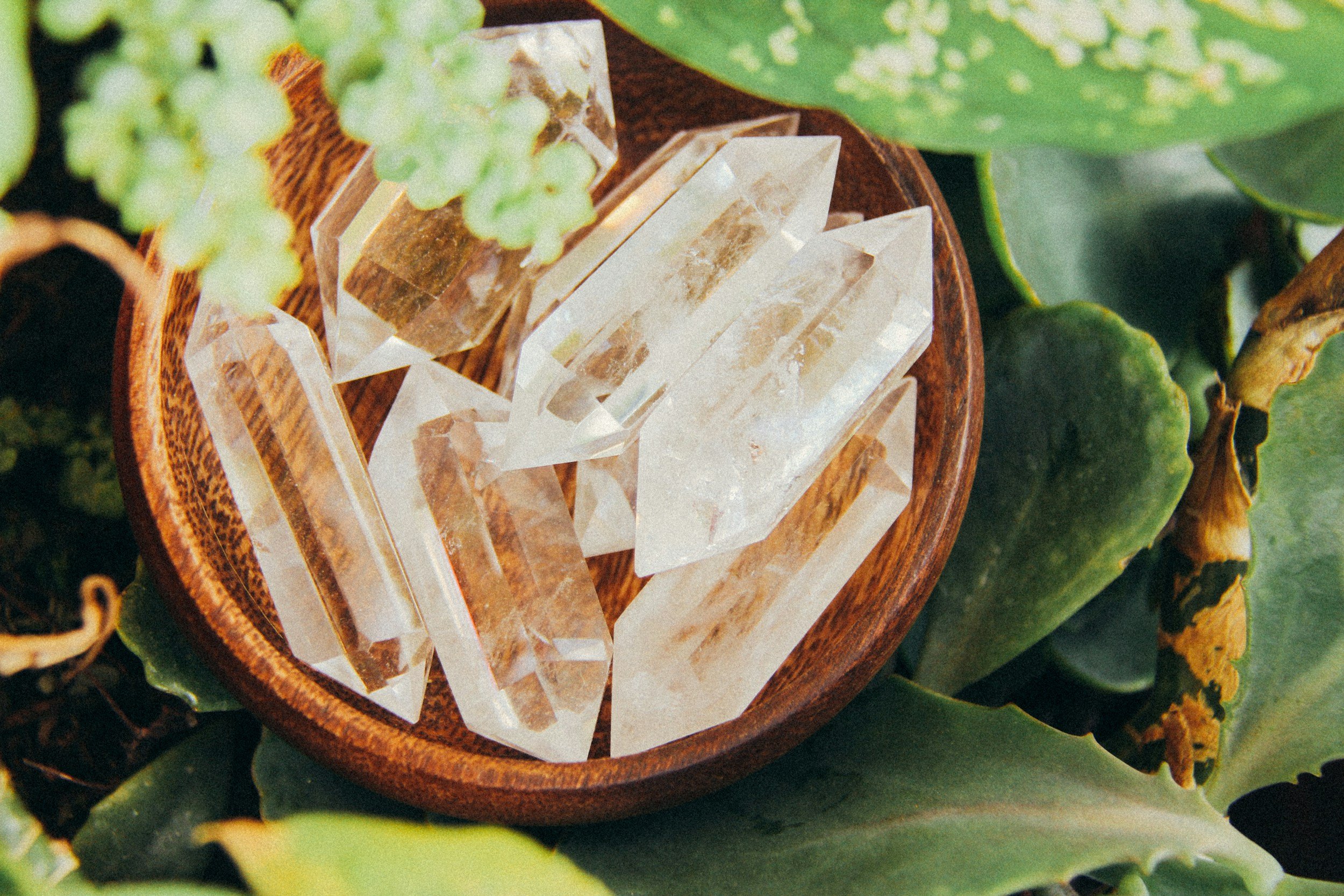How Acupuncture and Intention Work Together for Deep, Natural Healing
Can I bring my crystals to my acupuncture appointment? Of course you can! This is your acupuncture session, and I want you to feel as supported and comfortable as possible. Do you love your crystals? Do you carry a grounding stone in your purse? Tuck a little rose quartz in your bra? Maybe you wear a necklace that just feels like it holds good energy. I’ve seen it all—and you are always welcome here, exactly as you are.
This is a space not just for physical healing, but for all the emotions that come with being human. You can bring your tension, your back pain, your hormonal chaos—but also your worries, your grief, your questions, and your laughter.
It’s a real privilege to share this space with you and to practice this ancient form of medicine. Acupuncture has a rich history, and it's more relevant now than ever. My personal mission is to honour traditional practices while grounding them in modern science. I love talking about connective tissue, fascia, brain chemistry, hormones, and the nervous system. But I also love the part of acupuncture that still feels like a bit of a mystery.
Qi: Your Inner Current
At the heart of Traditional Chinese Medicine is the concept of Qi. You can think of Qi as your life force—your internal current that animates everything you are.
Qi flows through channels in the body known as meridians, which function like energetic highways. When Qi flows smoothly, you're in balance: your sleep is restful, your digestion is solid, your emotions are steady, and your body feels at ease. But when Qi becomes stuck, weak, or chaotic, that’s when symptoms begin to surface—anything from pain to anxiety to chronic fatigue.
Acupuncture helps regulate this flow. By inserting fine needles into specific points along the channels, we give the body a signal to correct imbalances and restore harmony. It’s like pressing a reset button—or giving your system a gentle nudge to remember how to function at its best.
The Science-y Bit (That’s Still Pretty Magical)
Now, for those of you who appreciate a little data with your intuition—yes, science is catching up.
We now know that acupuncture affects multiple systems in the body, including:
The nervous system, by stimulating the release of endorphins, dopamine, and serotonin
The endocrine system, by regulating hormones and stress responses
The immune system, by modulating inflammation and boosting immune cell activity
The circulatory system, by increasing blood flow and supporting tissue repair
One of the most exciting areas of research is in fascia—the connective tissue that wraps around your muscles, organs, and bones like a three-dimensional web. Fascial lines bear a remarkable resemblance to the traditional meridian pathways. When acupuncture needles interact with fascia, they produce measurable mechanical and biochemical changes.
What Does It Feel Like?
Some of my clients describe a tingling, a heaviness, a dull ache, or a sense of spreading warmth. This sensation—called “De Qi”—is a sign that energy is responding to the treatment. Every body is different, and each experience is valid.
Feeling deeply relaxed, even dreamy is what acupuncturists call an “acu nap”. Sometimes, you won’t feel much at all during the treatment—but hours later you might notice less pain, better sleep, or a shift in your mood. However if you're coming in for pain relief, we'll work together during your session to get a real-time response—often that means less pain before you even leave the table.
And the Crystals?
So, what role do crystals play in all this?
Whether or not you believe crystals emit healing energy, they can absolutely serve a purpose. They’re tangible reminders of your intentions. They ground you. They connect you to something meaningful—whether it’s protection, strength, calm, or just a little sparkle in your bra.
Crystals and acupuncture both work with intention. Both encourage presence and mindfulness. And both invite you to participate in your healing—as an active co-creator of your wellbeing, and to make you feel safe and supported.
crystals
What Can Acupuncture Help With?
Here’s just a glimpse of what acupuncture is commonly used for:
Chronic and acute pain (back, neck, knees, shoulders, etc.)
Anxiety, depression, and emotional overwhelm
Sleep disturbances and insomnia
Menstrual irregularities and menopause symptoms
Digestive complaints
Fertility support and postpartum recovery
Headaches and migraines
Burnout, fatigue, and immune depletion
Grief, trauma, and transitions
Acupuncture can also be part of your preventative care—keeping you balanced and resilient, even when life throws curveballs.
Ancient Medicine. Modern Relevance.
Whether you’re here for the science, the ritual, the results—or all three—it’s all valid. This medicine meets you where you are.
There’s something powerful about letting yourself be still, listened to, and treated with care.


